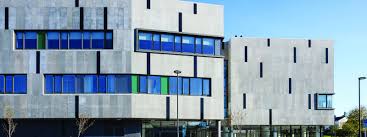This degree builds a core foundation in key computing disciplines in Year 1. The degree emphasises practical laboratory experience for students in areas such as Programming, Networking and Database Administration.
The subjects studied in Year 1 include core computing modules in Programming, Web Design, Operating Systems, Mathematics, Database Management and Personal Development.
All our Computing degrees have a common first year. Students study a wide range of computing modules to give them an understanding of all aspects of computing and the flexibility to change direction in Year 2 if desired.
Year 2 focuses on developing the knowledge, skills and competence in core areas of Programming, Database Development, Mathematics and Software Analysis and Design, whilst allowing the flexibility to specialise in elective choices.
In Year 3 the core computing modules include; Business Application Development, Work Experience and a group project and elective choices in Software Project Management, Software Quality and Testing, Web Programming, Networking Switch & Wireless and Database Administration.
The final year includes a supervised project and core modules in IT Management and Entrepreneurship and elective choices in Cloud Application Development, Mobile Architecture & Design and Virtualisation Management.
This is an extremely hands on degree with lots of time spent in computer labs creating programs and solving problems. The aim is to teach students how to use industry standard tools and techniques and then explain the concepts behind them. Creativity, problem solving, persistence and critical thinking are key skills which are developed during the degree. New high-tech computer teaching labs will open at ATU Sligo in 2023 and give students access to the latest advancements in technology.
Our team of lecturers have students as their number one priority. Small class sizes and a hands-on approach means that help and guidance is available when needed.
The degree particularly encourages critical thinking skills in students and this aspect of education ensures ongoing professional career and lifelong learning development. This skills profile will equip graduates for key roles in industry, and research and development. Numerous government reports have indicated that in order for the “Knowledge Economy” to develop in Ireland a critical requirement is the education of computing graduates with key sectoral skills. By joining this degree students become part of this “Knowledge Based Economy” driving competiveness and excellence in a revitalised Irish economy.

